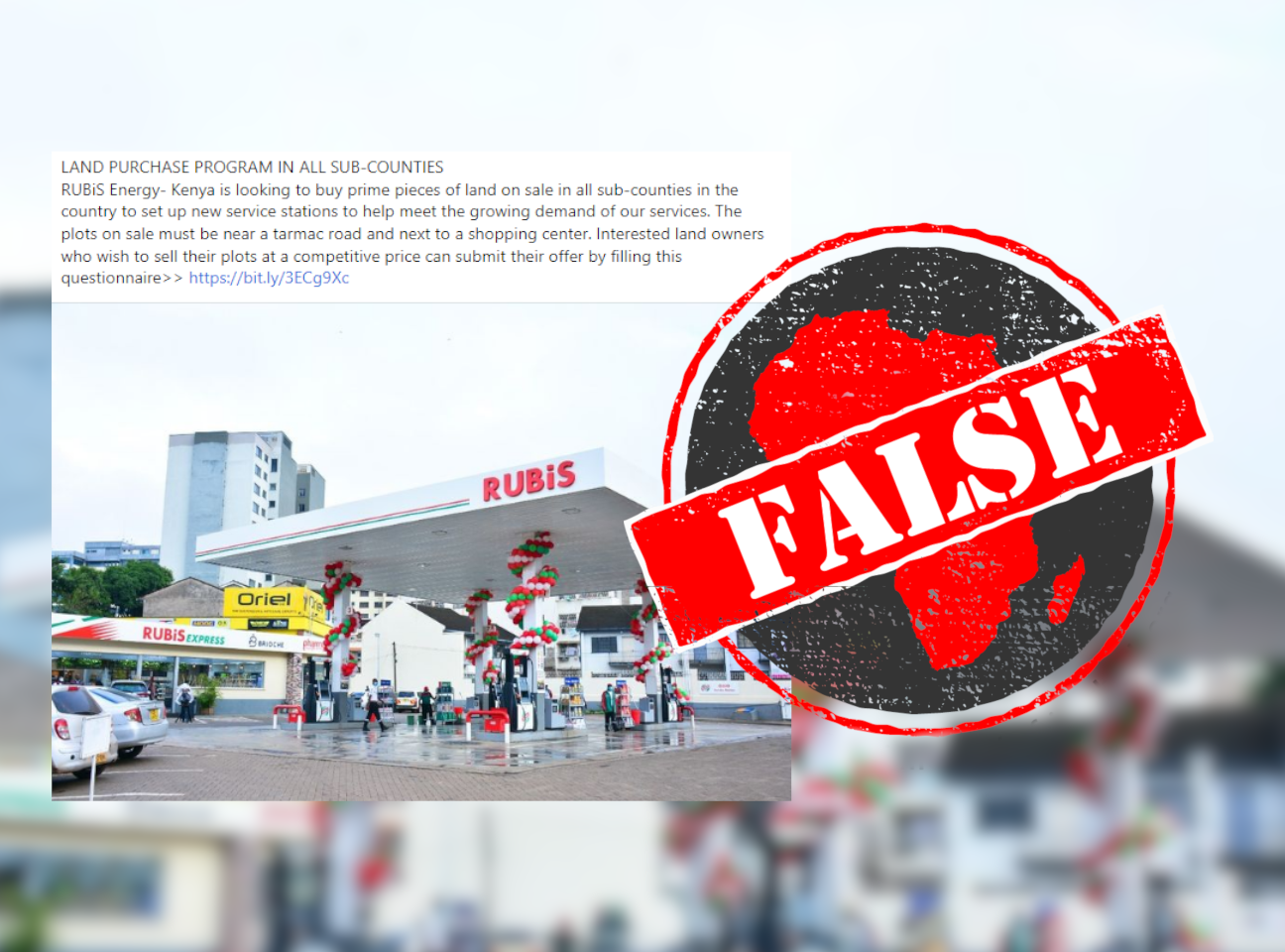IN SHORT: A new Facebook page appearing to represent fuel distributor Rubis Energy is posting requests to buy land in Kenya. But beware – it’s a fake page, possibly attempting to steal personal information.
A major fuel distributor in Kenya is looking to buy land for new service stations because of high demand for its products.
At least, that’s the claim by a Facebook page called RUBiS Energy- Kenya.
Rubis is headquartered in France but operates across the Caribbean, Europe and Africa. In these countries it operates through its subsidiary Rubis Energy.
In Kenya, Rubis Energy distributes petroleum products, including bitumens, aviation fuel and liquified petroleum gas, and also operates filling stations.
The post reads: “LAND PURCHASE PROGRAM IN ALL SUB-COUNTIES RUBiS Energy- Kenya is looking to buy prime pieces of land on sale in all sub-counties in the country to set up new service stations to help meet the growing demand of our services. The plots on sale must be near a tarmac road and next to a shopping center.”
“Interested land owners who wish to sell their plots at a competitive price can submit their offer by filling this questionnaire,” the post adds.
It then links to a Google form that asks for details such as name, identification number, contact number, gender, occupation, location and selling price of the land.
But is this announcement legitimate? We checked.

Red flags: request and application form are dodgy
The first red flag is that the application is on a Google form, and not the Rubis website.
We found no such announcement on the official Rubis Kenya website .
The RUBiS Energy- Kenya page was created on 11 October 2022, the same date it posted its request for land. The page has 10 followers.
In contrast, the official verified Rubis Energy Kenya was created on 15 October 2020 and has 24,670 followers.
The company also flagged that the newer page and requests to purchase land were fake.
“Please note that the below page is FAKE. Communication is done on our official and verified Facebook page. Kindly report the page as a scam,” the warning reads.
Republish our content for free
For publishers: what to do if your post is rated false
A fact-checker has rated your Facebook or Instagram post as “false”, “altered”, “partly false” or “missing context”. This could have serious consequences. What do you do?
Click on our guide for the steps you should follow.
Publishers guideAfrica Check teams up with Facebook
Africa Check is a partner in Meta's third-party fact-checking programme to help stop the spread of false information on social media.
The content we rate as “false” will be downgraded on Facebook and Instagram. This means fewer people will see it.
You can also help identify false information on Facebook. This guide explains how.




Add new comment